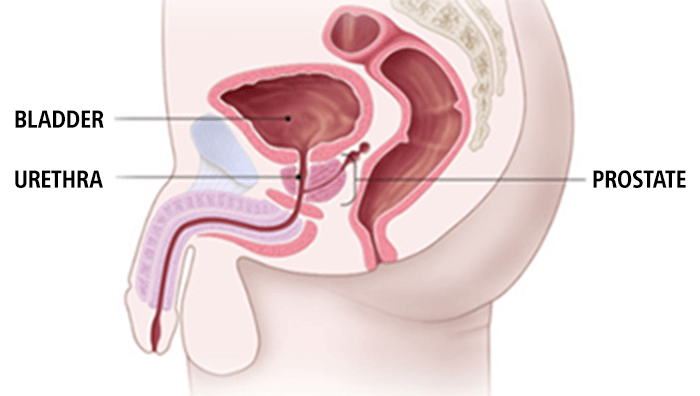Health Essentials
This Valentine’s weekend renew your energy

t is quite common to hear people complain about a lack of energy, fatigue, foggy brain and a host of others. The real danger is the accidents and errors that this situation may cause, and quite often many people suffer the consequences.
There is NO quick fix for renewing your energy, but it doesn’t take an effort akin to manning a spaceship to achieve this. Over the past few years, I have been a huge proponent of Greenscription. This essentially involves PRESCRIBING everyday lifestyle modifications that make us the best version of ourselves. Definitely every human will occasionally have a bad day, but we can minimise these and enjoy life.
Yes, you may need a supplement sometimes or require medication to correct or treat a condition, but we will all feel more energised if we practice the steps below. Remember “one healthy choice is ALWAYS followed by another”, start slowly and add on. We all have what it takes.
1. Learn new things: yes, we all need to. Avoid rut. What are you learning now?
2. Simplify things: no need to complicate things. If it appears too complicated its either you don’t understand it or you are on the wrong path
3. Think positively: your cells are listening to you at all times. Speak positive words
4. Eat healthy food: we are what we eat. I am sure people powered by unhealthy, refined food-like substances is definitely the wrong “fuel”
a. I believe you know water is an essential component of your food. Drink adequate amounts.
5. Socialise: we are no islands. DO NOT isolate yourselves. We derive energy from people but avoid energy sappers. They will drain you to death.
6. Meditate: allow your brain to rest
7. Move and play: Exercise and play happen to be one of the few things that provide instant results. When did you last take a walk outdoors or join friends to play a game of table tennis or other.
8. Be grateful: Gratitude appears too simple to be real BUT it is a game changer
9. Enjoy sunlight: very few things beat sunlight. Little wonder seasons with limited sunlight have high numbers of people with mental health challenges
10. Spend time in nature: the sound of water, rocks, greenery. They have amazing benefits. Spend time in nature and do it often. You may even create your own at home or at the workplace.
11. Music is life; but it needs to be the right type.
12. Get enough sleep: It all starts with Sleep, and it ought to be restful. If you have sleep apnoea you may be doing yourself a disfavour. If you snore, talk to your doctor and get the appropriate tests done.
13. REST – Even the Almighty God rested. Not because He needed it BUT he had to set an example for us. Sometimes we just need to sit and “do nothing” or get creative or cut out the noise.
Do put these into practice and next week we will delve into what we need to avoid to remain energised.
This Valentine’s weekend, renew your energy and continue with the tips that will ensure you remain the best version of yourself.
AS ALWAYS LAUGH OFTEN, ENSURE HYGIENE, WALK AND PRAY EVERYDAY AND REMEMBER IT’S A PRICELESS GIFT TO KNOW YOUR NUMBERS (blood sugar, blood pressure, blood cholesterol, BMI)
Dr Kojo Cobba Essel
Health Essentials Ltd (HE&W Group)
(dressel@healthessentialsgh. com)
*Dr. Essel is a Medical Doctor with a keen interest in Lifestyle Medicine, He holds an MBA and is an ISSA Specialist in Exercise Therapy, Fitness Nutrition and Corrective Exercise. He is the author of the award-winning book, ‘Unravelling The Essentials of Health & Wealth.’
Thought for the week – “The next big thing in Healthcare in Ghana is the Medics Clinic from Medics Group & Health Essentials. Send me an email at dressel@healthessentialsgh.com for more information.”
References:
1. Culled from Mental Health on LinkedIn
By Dr Kojo Cobba Essel
Health Essentials
Show Me Your Friends and I Will Show You Your Health Span
“Me nyare n’anso me nti ap)” is a popular Akan saying that can be translated into English as “I am not ill, yet I feel unwell.” It is that feeling when you just can’t place a finger on what is not right with you.
Today, I can confidently inform you that if you have felt this way in the past, you certainly had a point. Medical science has come a long way, and we know that health and wellness go far beyond the physical aspects such as pain, heart disease, or infections.
Other equally important aspects of wellness exist, and these may be classified as Social, Mental, Spiritual, Financial, and Digital Health and Wellness.
Do not be surprised when your doctor begins to ask you questions about your social network, such as those you have close ties with—family, friends, or both. Longevity depends to a large extent on one’s social support system or network.
As the American Heart Association notes, “lack of SOCIAL CONNECTION is associated with increased risk of premature death from all causes, especially among men.”
This is no open ticket to spend all of one’s after-work hours hanging out with friends under the disguise that you are prolonging your life. Moderation is key in all things, and your strong social ties need not be a whole village. All you need is a handful of loyal friends or family who know you inside out and have your wellbeing at heart.
If you are stressed out or have any mental health challenges, you should be able to speak to a close friend. Sharing your challenge may just be enough, or this friend may be able to advise you appropriately. It is easy to laugh with such friends and not be worried about being judged. Laughter, as you know, is medicine.
Close contacts may prompt you to take your physical health seriously, but even if they don’t, that bond you share produces feel-good hormones that protect you and prolong your health span.
I prefer health span to lifespan simply because lifespan refers to just being alive, but one may not be “living”—you could be bedridden, in a coma, or have multiple organ challenges. We should all aim for a long health span.
The art of building strong social connections is one reason we need to work on getting our children away from their phones and other gadgets that deprive them of the opportunity to talk to peers, share physical contact, and form lifelong relationships.
Dear friend, choose your friends wisely if you want to live a long, healthy, and happy life.
While you work on your social connections, let us breathe our way to great health by following the steps below. Repeat these steps daily:
- Sit in a quiet place.
- Avoid tight clothing (loosen your belt, necktie, or other constricting clothing).
- Take deep breaths through your nostril and exhale slowly through partially closed lips.
- At the peak of your initial inhale, take in another breath and hold for a count of 4 before exhaling.
- Expand your belly as you breathe in.
- Focus on your breathing and forget about everything else.
- When your focus drifts off (and it will about 50% of the time), acknowledge the thought but quickly return to your breathing.
- Continue breathing in and exhaling for five minutes.
- Increase the duration of this breathing/mindfulness over time.
…and remember to teach your friends to breathe too. After all, together you will live a long, healthy, and enjoyable life.
As always: laugh often, ensure hygiene, walk and pray every day, and remember it’s a priceless gift to know your numbers (blood sugar, blood pressure, blood cholesterol, BMI).
Dr. Kojo Cobba Essel
Health Essentials Ltd (HE&W Group)
(dressel@healthessentialsgh.com)
Dr. Essel is a Medical Doctor with a keen interest in Lifestyle Medicine. He holds an MBA and is an ISSA Specialist in Exercise Therapy, Fitness Nutrition, and Corrective Exercise. He is the author of the award-winning book, Unravelling The Essentials of Health & Wealth.
Thought for the week (1): “Lack of sleep may predispose you to many diseases including a STROKE. Jump into bed an hour earlier and sleep a stroke away.”
Thought for the week (2): “There is no magic formula to being happy, but making a conscious effort to be happy goes a long way.”
Join us at the La Palm Royal Beach Hotel for our end-of-year Wellness Festival on Saturday, 29th November 2025, from 6 a.m. to 10 a.m. You should not miss this event. All six pillars of wellness will be at play.
By Dr. Kojo Cobba Essel
Join our WhatsApp Channel now!
https://whatsapp.com/channel/0029VbBElzjInlqHhl1aTU27
Health Essentials
The Prostate Has Found Its Voice

The prostate gland, a small but essential organ found only in men, plays a key role in reproductive health. It produces fluid that nourishes, protects, and transports sperm, yet many focus only on its connection to prostate cancer.
Location & Function
- Situated between the bladder and penis, with the rectum behind it.
- The urethra passes through the prostate, carrying urine and semen.
Common Prostate Conditions
1. Prostatitis – Infection of the prostate:
- Symptoms: chills, fever, pus-like urethral discharge, painful urination, groin/testicular pain, painful orgasms, erectile dysfunction.
- Advice: Seek professional help; do not self-medicate.
2. Benign Prostatic Hyperplasia (BPH) – Non-cancerous enlargement of the prostate:
- Symptoms: frequent urination (especially at night), urge incontinence, difficulty starting urination, weak stream, painful urination, blood in urine, terminal dribbling, and in severe cases, inability to urinate.
- BPH can be extremely painful, sometimes compared to labor pains.
3. Prostate Cancer – Common among men, especially black men, often aggressive and with earlier onset:
- Risk Factors: older age, African descent, family history, obesity.
- Symptoms: frequent urination, straining, blood in urine/semen, weak urine flow, new erectile dysfunction; advanced stages may include fatigue, weight loss, and bone pain.
Diagnosis
- Digital rectal examination – checks for irregular or hard areas.
- PSA test, biopsy, ultrasound, CT/MRI/PET scans, bone scan.
Management
- Holistic approaches include watchful waiting, medication, surgery, and radiation (external & brachytherapy).
- Always discuss all options with your healthcare provider.
Risk Reduction Tips
- Regular screening
- Healthy, varied diet rich in fruits and vegetables (carrots, tomatoes, broccoli, kale, cauliflower)
- Maintain a healthy weight
- Exercise at least 5 days a week
Final Advice
- Share this information – the prostate needs support!
- Maintain good hygiene, walk and exercise daily, pray, and know your numbers (blood sugar, blood pressure, cholesterol, BMI).
Thought for the Week:
“There is no magic formula to being happy but making a conscious effort to be happy goes a long way.” – Dr. Kojo Cobba Essel
Dr. Essel invites readers to the La Palm Royal Beach Hotel Wellness Festival on Saturday, November 29, 2025, at 6 a.m., to walk, exercise, network, and share ideas to stay healthy.
Contact: dressel@healthessentialsgh.com
By Dr. Kojo Cobba Essel
Join our WhatsApp Channel now!
https://whatsapp.com/channel/0029VbBElzjInlqHhl1aTU27






